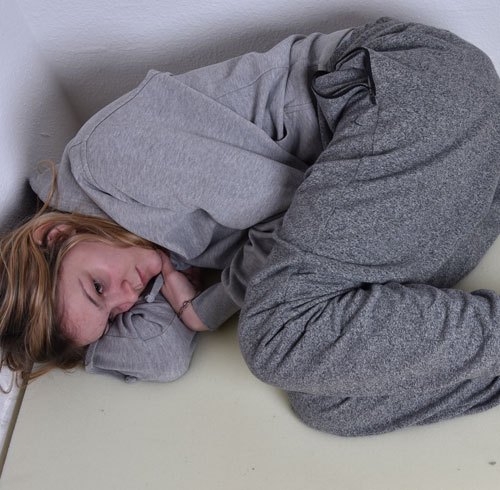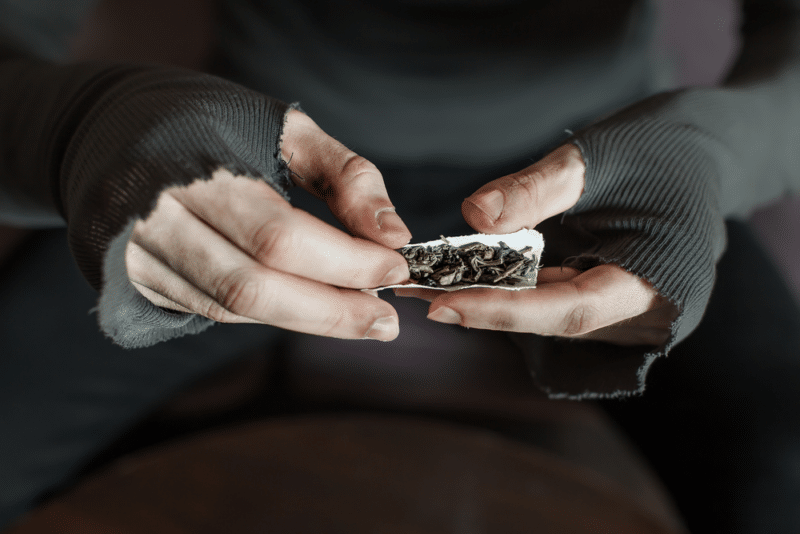For decades, experts have debated everything relevant to the use of marijuana such as whether is marijuana a stimulant or depressant. They debate its adverse effects, its usefulness as a medical treatment, and whether or not states should legalize it for public use. Until every state legalizes marijuana, it’s a good bet that these debates will continue.
While these debates do continue, there is one interesting question that keeps popping up. Is marijuana a depressant or stimulant? The answer to this question is important because it helps aid in people’s understanding of the effects of the drug. In the sections below, we will be addressing whether is marijuana a depressant or is Marijuana a stimulant. We will also delve into the potential for addiction should someone like you want to start using marijuana regularly.
If you know someone already struggling with an addiction to marijuana, call us today at 772-774-3872.
THC and CBD: Is There a Difference?
For educational purposes, we want to take a moment to discuss the two main active ingredients found in marijuana: THC and CBD.

Marijuana’s primary active ingredient is called tetrahydrocannabinol or THC. This is the actual chemical that produces most of the effects of marijuana, including its hallucinogenic effects. It accomplishes this by attaching itself and influencing the receptors in the brain and spinal cord that control:
- Pleasure
- Concentration
- Memory
- Sensory perception
- Thinking
- Coordination
The second most prominent active ingredient is CBD, which stands for cannabidiol. This ingredient is found directly in the hemp plant, which is closely related to the marijuana plant but not the same. There is no evidence that CBD affects any receptors in the brain. Therefore, it cannot produce a “high.”
Drug Classifications
Before we try to answer whether cannabis is a depressant or a stimulant, we should start by defining the possible drug classifications according to the National Institute of Drug Abuse.
All drugs pretty much fall into one of the following four categories:
- Depressants: these drugs serve to slow brain function and calm nerves (alcohol, barbiturates, and Xanax)
- Stimulants: mood elevators that increase alertness and energy (cocaine and methamphetamine)
- Opiates: strong painkillers that affect the pain sensors in the brain (heroin, morphine, fentanyl, and codeine)
- Hallucinogens: mind-altering, psychoactive drugs that affect the perception of reality (LSD, psilocybin, and MDMA)
Is Marijuana a Stimulant or Depressant?
So, is marijuana a stimulant or depressant? To begin with, we know marijuana does not have pain killing properties so that rules out the opiate classification. Next, some people do experience hallucinations when using marijuana. However, it’s very rare and not really worthy of any meaningful conversation. That leaves the other two categories, which we know for a fact apply to this conversation. Let’s break it down in detail. Before we begin, we want to state that marijuana affects each individual differently. It might make you feel relaxed while your friend starts acting silly.
Is Marijuana a Depressant
We know that depressants will act to slow brain function. Doctors typically prescribe these types of drugs to treat mental health conditions like anxiety disorders and sleeping issues.
Although depressants provide relief from these types of conditions, it’s worth noting that sometimes there are negative short-term effects like and physical symptoms such as:
- Loss of motor function and memory
- Slowed breathing
- Lowering of blood pressure
- Blurred vision
- Dizziness
- Addiction
And so is marijuana a depressant? Marijuana would have to produce at least some of these good or bad effects to earn classification as a depressant.
Indeed, marijuana does produce similar effects like:
- Release of tension
- Muscle relaxation
- Impaired memory and motor function
- Desire to rest or sleep
Based on this information, marijuana/cannabis certainly qualifies as a depressant.
Is Marijuana a Stimulant
Alternatively, we know that stimulants lead to elevated moods, alertness, and energy levels. They can also produce negative effects like:
- Increased blood pressure and heart rate
- Increase in anxiety
- Heart problems
- Paranoia
Hence, marijuana would have to lead to one or more of these effects to be a stimulant. In fact, marijuana produces similar effects such as:
- Increase in heart rate
- Paranoia
- Increase in energy
- Increase in appetite
So is marijuana a stimulant? Yes, Marijuana/cannabis can also be classified as a stimulant based on this information.
How Does Marijuana Interact With Other Substances

Since marijuana can act as a depressant or a stimulant, it creates the potential for danger when it’s combined with other substances.
We’ll give you a couple of examples.
Example 1: If you react to marijuana as a depressant, you would need to be extra careful about using it in conjunction with other depressants. Why? Too many depressants affect your central nervous system, exposing you to potential breathing problems and increasing the potential of you developing an addiction to either substance.
Example 2: Conversely, you would want to avoid using meth or cocaine if you typically react to marijuana as though it’s a stimulant. Too much exposure to stimulants would put you at an increased risk for heart disease, high blood pressure, and addiction.
Example 3: Combining prescription painkillers with marijuana can slow down the central nervous system, causing dizziness and drowsiness. It can also lead to a greater risk of respiratory depression, which is when breathing slows or stops altogether.
While these are real examples of potential issues, it’s fair to say some substances work well with cannabis. It really depends on each individual.
Medical Uses for Marijuana
Since most states have legalized marijuana for medical use or disease control, it’s worth pointing out which conditions doctors will try to treat with it. In states that only permit the use of marijuana for medical purposes, you would have to meet certain requirements as put forth by the state in which you reside. Here’s a short list of diseases or conditions that could lead to you getting legal access to medical marijuana from your doctor:
- Cancer
- HIV/Aids
- Epilepsy and seizures
- Glaucoma
- Multiple sclerosis and muscle spasms
- Severe pain
The Signs of Marijuana Abuse

There is a pretty fine line between using marijuana safely and abusing it.
If you aren’t clear about whether or not you or a loved one is abusing the substance, here are a few signs you can look for as drug abuse indicators:
- Needing to use more or more frequently to get the desired effect
- Having cravings for the substance when not using it
- Missing work or school to get high
- Not taking care of personal responsibilities
- Obsessed with finding marijuana or the money to buy it
- Illicit behaviors like driving while under the influence
- Problems with personal relationships
Is Marijuana Addictive?
Much like the question of whether marijuana is a depressant or stimulant, experts debate the addictive nature of marijuana for decades. Studies suggest marijuana does have addictive properties. Although, it’s not as addictive as substances like meth or heroin in theory.
Accordingly, there are two ways you might get addicted to marijuana. First, you might form an actual physical addiction. If you have a physical addiction, you would likely experience mild withdrawal symptoms with long periods of abstinence. Otherwise, you might form a psychological addiction, which would be characterized by you experiencing agitation, anxiety, or insomnia with long periods of abstinence.
Treating Marijuana Addiction

Whatever the answer to the question is marijuana a depressant or a stimulant, if you were to start experiencing tangible problems in your life because of marijuana abuse, you probably have an addiction problem. Consequently, you would need treatment to kick the habit. The best place to get help for any substance addiction would be through a top-quality rehab like ours. As for the treatment process, you would need to place most of your focus on therapy. With other substance addictions, you might need to go through a medically monitored detox program.
Detox programs create a safe environment for clients to go through withdrawal. Since the withdrawal symptoms associated with marijuana addiction are generally mild, you probably would skip detox and go right to therapy.
About Drug Abuse Therapy
In therapy, you would get a chance to work with therapists with one goal in mind: finding the root causes of your addiction. Why is this important? In a lot of cases, a marijuana abuser is trying to mask or escape problems. When they are high, their troubles seem to disappear. Whatever it is that drives your need to abuse marijuana needs addressing. Our experience tells us that evidence-based therapies like cognitive-behavioral therapy (CBT) and dialectal behavioral therapy (DBT) are good options for treating marijuana addiction.
By teaching clients how their negative thoughts (cognitive) and feelings (dialectical) are influencing their need to abuse marijuana, it allows them to change the negatives into positives. By doing that, the need to abuse any drugs diminishes.
Behavioral Health Centers offers the following therapies for marijuana addiction:
- Cognitive-behavioral therapy
- Dialectical behavior therapy
- Eye movement desensitization and reprocessing therapy (EMDR)
- Life skills therapy
- Neurobehavioral therapy
If you can get at the root causes of your addiction, you would stand a good chance of finding better ways of coping with your issues. The aforementioned therapies can help you get there. These coping tools would be your line of defense against future relapses. We hope we have provided some insight into the question: is marijuana a depressant or a stimulant?
If for any reason you believe you or a loved one might have a problem with marijuana, we want to encourage you to contact us. We have the resources and programs available to help you or your loved one with any drug abuse issue.
Allow Behavioral Health Centers to assist you or your suffering family member. Our compassionate team members are willing and ready to point struggling individuals toward a healthy and addiction-free future!





